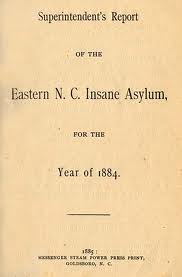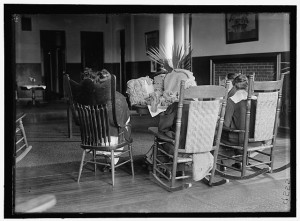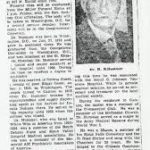Superintendents felt strongly that only one person could be in charge of an asylum. They wanted no interference from boards of directors or trustees, or from the public, since they felt that no one but themselves really knew their business. Superintendents also disliked sharing power–patients and staff should have no doubt as to who was in charge. Superintendents often fought a running battle with outside forces who wanted to provide oversight or help them. Superintendents frequently got their way, but that meant they were also inundated with administrative tasks that ate up their time.
Oscar S. Gifford, the first superintendent of the Canton Asylum for Insane Indians, had to personally accept and receipt for $14 and $2, the property of patients Miguel Maxcy and Arch Wolf, respectively, when they were transferred from St. Elizabeths in January, 1903. He personally took patients to church at times, escorted new patients from their reservations to the asylum, and picked up escaped patients after they were caught and detained. He wrote annual reports, corresponded with the Indian Office, and reviewed employment applications among other duties. Despite his extremely small institution, small staff, and few patients, Gifford eventually ran into trouble because he could not manage to supervise any of them effectively.
______________________________________________________________________________________








